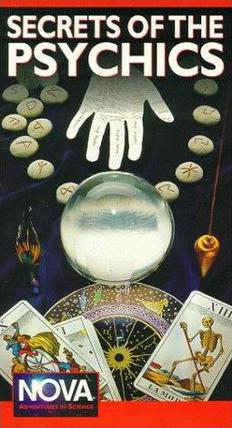
James Randi was a Canadian-American stage magician and scientific skeptic who extensively challenged paranormal and pseudoscientific claims. He was the co-founder of the Committee for Skeptical Inquiry (CSI), and founder of the James Randi Educational Foundation (JREF). Randi began his career as a magician under the stage name The Amazing Randi and later chose to devote most of his time to investigating paranormal, occult, and supernatural claims, which he collectively called "woo-woo". Randi retired from practicing magic at age 60, and from his foundation at 87.
The James Randi Educational Foundation (JREF) is an American grant-making foundation. It was started as an American non-profit organization founded in 1996 by magician and skeptic James Randi. The JREF's mission includes educating the public and the media on the dangers of accepting unproven claims, and to support research into paranormal claims in controlled scientific experimental conditions. In September 2015, the organization said it would change to a grant-making foundation.

The Silva Method is a self-help and meditation program developed by José Silva. It claims to increase an individual's abilities through relaxation, development of higher brain functions, and psychic abilities such as clairvoyance.

The Committee for Skeptical Inquiry (CSI), formerly known as the Committee for the Scientific Investigation of Claims of the Paranormal (CSICOP), is a program within the transnational American non-profit educational organization Center for Inquiry (CFI), which seeks to "promote scientific inquiry, critical investigation, and the use of reason in examining controversial and extraordinary claims." Paul Kurtz proposed the establishment of CSICOP in 1976 as an independent non-profit organization, to counter what he regarded as an uncritical acceptance of, and support for, paranormal claims by both the media and society in general. Its philosophical position is one of scientific skepticism. CSI's fellows have included notable scientists, Nobel laureates, philosophers, psychologists, educators and authors. It is headquartered in Amherst, New York.
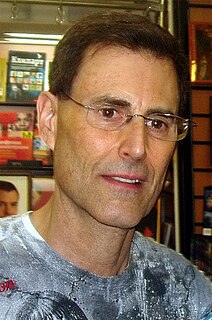
Uri Geller is an Israeli-British illusionist, magician, television personality, and self-proclaimed psychic. He is known for his trademark television performances of spoon bending and other illusions. Geller uses conjuring tricks to simulate the effects of psychokinesis and telepathy. Geller's career as an entertainer has spanned more than four decades, with television shows and appearances in many countries. Magicians have called Geller a fraud, due to his claims of possessing truly psychic powers.
Scientific skepticism or rational skepticism, sometimes referred to as skeptical inquiry, is a position in which one questions the veracity of claims lacking empirical evidence. In practice, the term most commonly references the examination of claims and theories that appear to be beyond mainstream science, rather than the routine discussions and challenges among scientists. Scientific skepticism differs from philosophical skepticism, which questions humans' ability to claim any knowledge about the nature of the world and how they perceive it, and the similar but distinct methodological skepticism, which is a systematic process of being skeptical about the truth of one's beliefs.
Peter George Popoff is a German-born American televangelist and debunked clairvoyant and faith healer. He was exposed in 1986 for using a concealed earpiece to receive radio messages from his wife, who gave him the names, addresses, and ailments of audience members during Popoff-led religious services. Popoff falsely claimed God revealed this information to him so that Popoff could pretend to cure them through faith healing.
Project Alpha was an effort by magician James Randi to test the quality of scientific rigor of a well-known test of paranormal phenomena.

Ray Hyman is a Professor Emeritus of Psychology at the University of Oregon in Eugene, Oregon, and a noted critic of parapsychology. Hyman, along with James Randi, Martin Gardner and Paul Kurtz, is one of the founders of the modern skeptical movement. He is the founder and leader of the Skeptic's Toolbox. Hyman serves on the Executive Council for the Committee for Skeptical Inquiry.
A debunker is a person or organization that exposes or discredits claims believed to be false, exaggerated, or pretentious. The term is often associated with skeptical investigation of controversial topics such as UFOs, claimed paranormal phenomena, cryptids, conspiracy theories, alternative medicine, religion, or exploratory or fringe areas of scientific or pseudoscientific research.
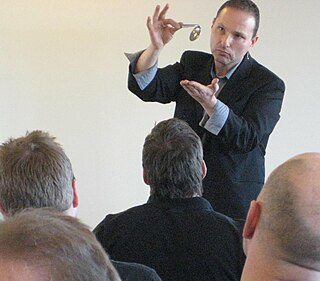
Spoon bending is the apparent deformation of objects, especially metal cutlery, purportedly by paranormal means. It is a common theme for magic tricks, which use a variety of methods to produce the effect. Performers commonly use misdirection to draw their audience's attention away while the spoon is manually bent. Another method uses a metal spoon that has been prepared by repeatedly bending the spoon back and forth, weakening the material. Applying light pressure will then cause it to bend or break.
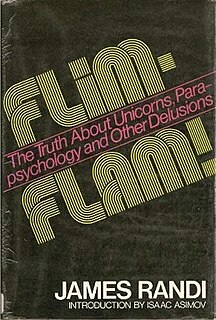
Flim-Flam! Psychics, ESP, Unicorns, and Other Delusions is a 1980 book by magician and skeptic James Randi about paranormal, occult, and pseudoscience claims. The foreword is by science fiction author Isaac Asimov. Randi explores topics which he says that scientists and the media are too willing to promote without skepticism and proper expertise.
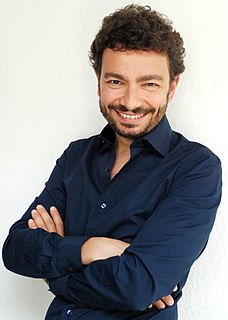
Massimo Polidoro is an Italian psychologist, writer, journalist, television personality, co-founder and executive director of the Italian Committee for the Investigation of Claims of the Pseudoscience (CICAP).

Richard Saunders is an Australian skeptic, podcaster, and professional origamist. He received recognition by the Australian Skeptics with a Life Membership in 2001 for his contributions to the organisation, and has twice served as their president. He founded Sydney Skeptics in the Pub. He has presented on skepticism, represented the Australian Skeptics on television and radio shows, and is the co-host of The Skeptic Zone podcast.

Banachek is an English mentalist, magician, and "thought reader".
The One Million Dollar Paranormal Challenge was an offer by the James Randi Educational Foundation (JREF) to pay out one million U.S. dollars to anyone who could demonstrate a supernatural or paranormal ability under agreed-upon scientific testing criteria. A version of the challenge was first issued in 1964. Over a thousand people applied to take it, but none were successful. The challenge was terminated in 2015.
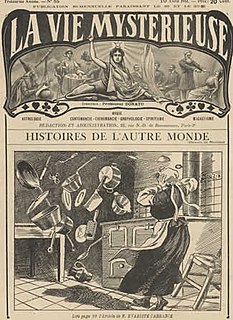
Psychokinesis, or telekinesis, is a claimed psychic ability allowing a person to influence a physical system without physical interaction.
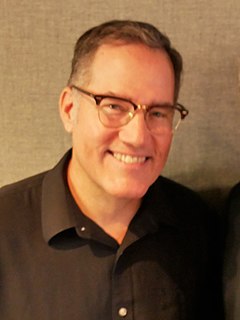
James "Jim" Underdown has been the executive director of The Center for Inquiry (CFI) West in Los Angeles since 1999. The Center for Inquiry is a non-profit educational organization with headquarters in Amherst, New York, whose primary mission is to foster a secular society based on science, reason, freedom of inquiry, and humanist values. CFI West is the largest facility in the organization outside Amherst.

An Honest Liar is a 2014 biographical feature film documentary, directed and produced by Justin Weinstein and Tyler Measom, written by Weinstein, Greg O'Toole and Measom, produced through Left Turn Films, Pure Mutt Productions and Part2 Filmworks, and distributed by Abramorama. The film documents the life of former magician, escape artist, and skeptical educator James Randi, in particular the investigations through which Randi publicly exposed psychics, faith healers, and con-artists. The film also focuses on Randi's relationship with his partner of 25 years, José Alvarez, who at the time of filming, had been discovered to be living under a false identity, calling into question "whether Randi was the deceiver or the deceived."
